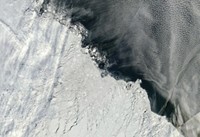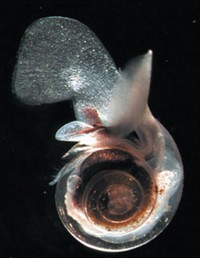Advertisement
Grab your lab coat. Let's get started
Welcome!
Welcome!
Create an account below to get 6 C&EN articles per month, receive newsletters and more - all free.
It seems this is your first time logging in online. Please enter the following information to continue.
As an ACS member you automatically get access to this site. All we need is few more details to create your reading experience.
Not you? Sign in with a different account.
Not you? Sign in with a different account.
ERROR 1
ERROR 1
ERROR 2
ERROR 2
ERROR 2
ERROR 2
ERROR 2
Password and Confirm password must match.
If you have an ACS member number, please enter it here so we can link this account to your membership. (optional)
ERROR 2
ACS values your privacy. By submitting your information, you are gaining access to C&EN and subscribing to our weekly newsletter. We use the information you provide to make your reading experience better, and we will never sell your data to third party members.
Environment
Irreversible Effects
Sea-level rise, drying of some regions may continue for centuries, study finds
by Cheryl Hogue
January 28, 2009

Debates over whether and how to reduce emissions of greenhouse gases should take into account that some effects of climate change are irreversible, according to a new scientific study.
The study, led by Susan Solomon, senior scientist at the National Oceanic & Atmospheric Administration (NOAA), finds that even if emissions of carbon dioxide from human activity stopped, some effects will be largely unalterable for more than 1,000 years (Proc. Natl. Acad. Sci. USA, DOI:10.1073/pnas.0812721106). These effects include sea-level rise and drying of some already arid regions of the world.
Global atmospheric CO2 concentrations are now approximately 385 parts per million, compared with about 280 ppm before industrialization began to ramp up in the mid-1800s. If current emission trends continue unabated, the level is expected to reach 550 ppm by 2035.
The study was based on computer models that projected what would happen if atmospheric CO2 levels peak between 450 and 600 ppm and all anthropogenic emissions of CO2 stopped. The assumption that human-caused emissions would stop is unrealistic for policy, but it is a conservative one for examining the effects of maximum levels.
If CO2 peaks between these levels, the study finds, currently arid subtropical regions, including the U.S. Southwest, southern Europe, northern Africa, southern Africa, and western Australia, would get even drier.
In addition, if atmospheric CO2 levels reach their zenith at 600 ppm, the resulting global warming would cause a rise of 1.3 to 3.2 feet in the level of the world's oceans because of thermal expansion alone, the study estimates. This projection excludes any sea-level rise due to melting of polar ice sheets or glaciers. The study says the projected rise in sea level from the heating of the oceans would leave low-lying islands and coastal areas underwater for a millennium.
The findings have important implications for debates over whether, when, and how countries should curb their CO2 emissions, according to the study's authors. "Current choices regarding carbon dioxide emissions will have legacies that will irreversibly change the planet," Solomon says.
For instance, some policy analysts, including Cass Sunstein, President Barack Obama's choice as the White House's overseer of regulations, have argued that investing in emission reductions now may not be the best climate policy for future generations. They contend it may be better policy to ensure that future generations are wealthier and more able to adapt to a changing climate.
Arguments that CO2 emission reductions can be put off don't consider impacts, such as sea-level rise, that last 1,000 years or more, says Mary-Elena Carr, associate director of the Columbia Climate Center at Columbia University's Earth Institute. A millennium is well beyond the usual time span for human planning, she tells C&EN.
These sorts of arguments, according to the study, "assume that more efficient climate mitigation can occur in a future, richer world but neglect the irreversibility" of the effects predicted by the computer models.





Join the conversation
Contact the reporter
Submit a Letter to the Editor for publication
Engage with us on Twitter